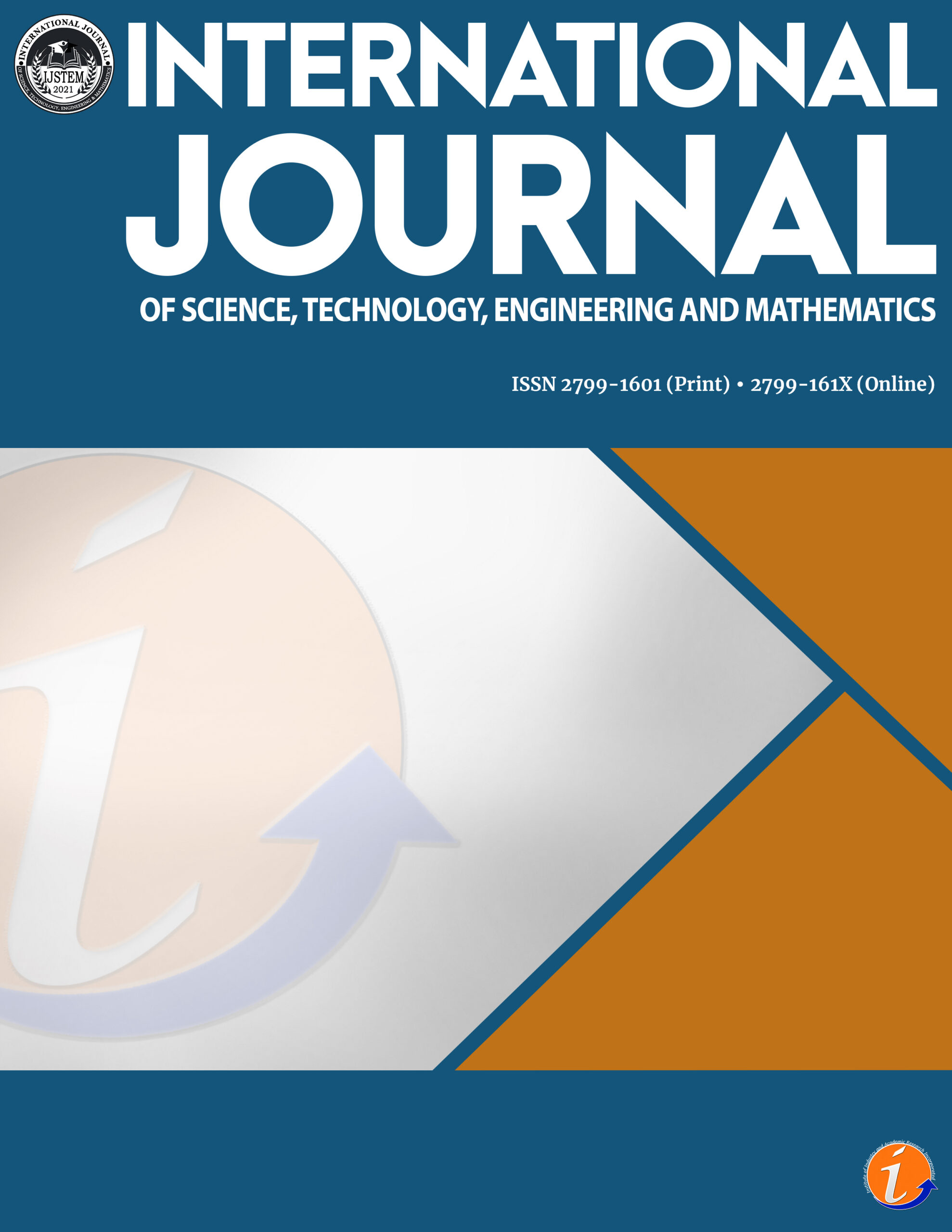Aims and Scope
International Journal of Science, Technology, Engineering and Mathematics (IJSTEM) is an open-access peer-reviewed quarterly journal focused on recent developments and broad aspects relative to science, information technology, engineering and mathematics. The journal also celebrates the wide spectrum of STEM education accross all educational levels. It is a selective multi-track journal covering all aspects of STEM and STEM education.
The journal employs rigorous double-blind review to ensure quality publications. Authors receive comment through feedforward communication approach. It is the prime objective of the reviewers to help authors improve the quality of the papers. As the journal promotes internationalization and collaboration, the multi-dimensional perspectives of the author and reviewers add high value to the research article. Moreover, the journal has solid support system for copyediting and formatting. The journal ensures that the research articles are within the standards of international publication.
It publishes high quality research papers that use quantitative, qualitative, or mixed methods. It provides an opportunity for researchers from industry, government, and academe to publish their latest results and a means to discuss recent developments in various fields.
The major areas of interest include, but are not limited to, the following topics:
Science
- Physical, life and earth science;
- Biomedical science and biomedical imaging;
- Environmental science;
- Ontology; and
- Health and nutrition.
Technology
- Systems modelling and simulation;
- Data communication and networking;
- Telecom market and computer architecture;
- Computer vision, image processing, and pattern recognition;
- Web, mobile, and cloud computing;
- Game development, animation and multimedia computing;
- Data security and cybersecurity;
- Big data, data analytics, and data science;
- Green computing;
- Block chain technology;
- Financial technology, enterprise resource applications;
- DevOps, technology platforms, quantum computing;
- AI, machine learning, natural language processing, deep learning;
- Data mining, knowledge discovery, and knowledge management;
- Decision support and recommender systems;
- Virtual and augmented reality;
- Robotics, internet of things, and automation; and
- Other topics related to ICT and its applications.
Engineering
- Biomedical engineering;
- Nanotechnology;
- Software Engineering and Software Development;
- Robotics and artificial intelligence;
- Sustainable and renewable energy;
- Mechanical engineering;
- Geotechnical engineering;
- Environmental engineering;
- Civil engineering;
- Topics in mechatronics;
- Computer engineering; and
- Electronics.
Mathematics
- Algebra and the number theory;
- Geometry, trigonometry and calculus;
- Probability and statistics;
- Game theory;
- Combinatorics;
- Differential equation;
- Mathematical modelling;
- Solving and expressing mathematical problems with digital tools; and
- Pure and applied mathematics.
STEM Education
- Curriculum development in STEM program;
- Teaching and learning pedagogies;
- Assessment and performance of STEM students;
- STEM student cognitive development and performance;
- Development and validation of STEM teaching materials;
- Classroom management and discipline in STEM classes;
- Internationalization of STEM education; and
- STEM-focused schools.






